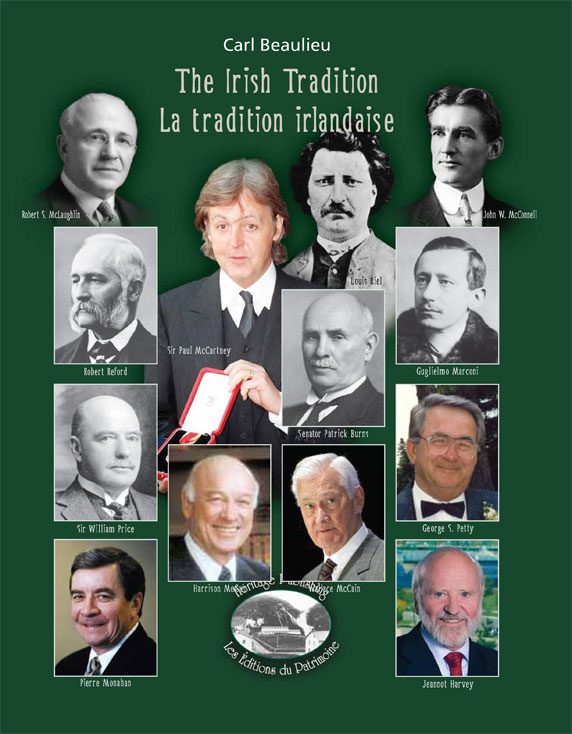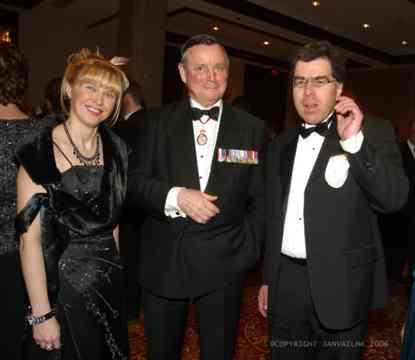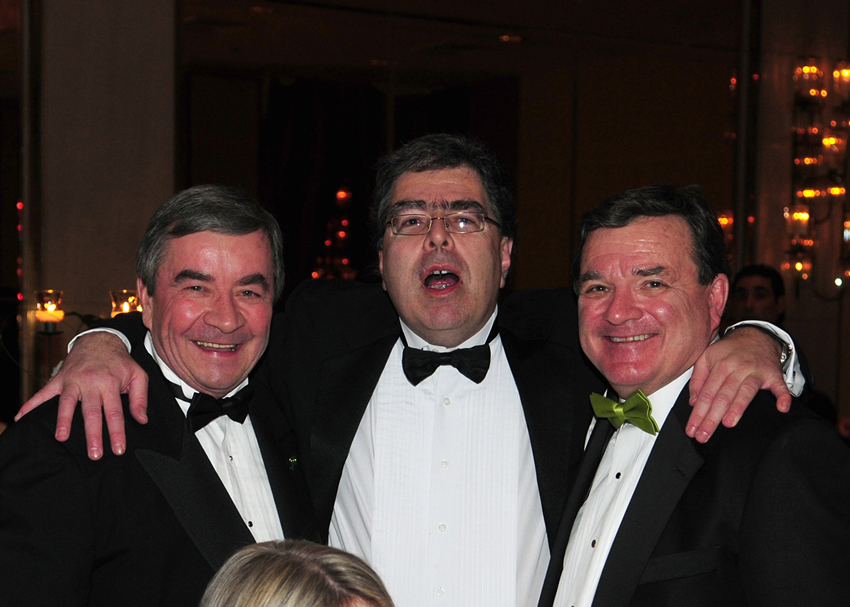|
|
|||
|
|||
|---|---|---|---|
|
|
|||
The Industrial Revolution, overpopulation and the potato famine all led to the immigration of millions of Irish people who took refuge around the globe. Since these events, Ireland has gradually taken root in all key sectors of our society. The Irish Tradition was written to reveal how the diaspora carried the shapers of Canada, and the significant impact Irish influence has had on the foundation and development of the New World. (Thomas Cahill's book 'How the Irish saved civilization' proved Ireland's impressive contribution from the fall of Rome to the rise of medieval Europe, and Tim Pat Coogan's 'Wherever green is worn' discusses the considerable impact the Irish have had on political, religious, academic and union institutions, especially in Europe (UK), USA, Canada, Australia, Africa, Latin America and in the Caribbean). Unique in its scope, this book covers the ways the Irish have shown their resilience and have stood out throughout the generations in Canada. It shows how local, provincial, national and international figures have left their mark on the New World. It also highlights their drive as they improved their lives, and contributed to society through their knowledge, leadership and ingenuity. Through enterprises and major institutions, they have influenced their communities' well-being and development in a very positive way. The Irish Identity is enhanced particularly thanks to many Canadian and International achievers of Irish origin in fields as diversified as exploration (McClure, McClintock), the fur trade (Connolly), business (Reford, Eaton, Holt, McCain, Shaughnessy, Meighen, McCrea, Sifton, Price, McLaughlin, McConnell, McCormick, Donohue, Lévesque, Collard, Joyce, Monahan, Boivin, Cribb, Barriere and Harvey), the political scene (Carleton, Uniacke, Baldwin, D'Arcy McGee, Sheyhn, Lynch, Riel, Fitzpatrick, Power and Duplessis), diplomatic and military operations (De Chastelain), religious activities (O'Reilly, McMahon, O'Bready...), scientific development (Hingston, Bowles, Marconi and Kerwin), heritage preservation (O'Gallagher), humanitarian support (Smith) as well as literature (Barry and Nelligan) and music (McCartney, Travers). A major event that presents the rich Irish culture the diaspora has shared with the world is the St. Patrick's parade. An example of this cultural identity which speaks for itself is the longest-standing and one-of-a-kind St. Patrick's parade held in Montreal. LA TRADITION IRLANDAISE La révolution industrielle, le surpeuplement et, surtout, la famine de la pomme de terre ont amené des millions d'irlandais à chercher refuge aux quatre coins du globe. Depuis ces événements, principalement, l'Irlande s'affirme à travers des figures marquantes en lui conférant une identité économique, politique et culturelle remarquable. La Tradition Irlandaise est le livre qui évoque comment les Irlandais du Canada ont pu se relever et se distinguer pour le bienfait et l'épanouissement des communautés où ils évoluent depuis des siècles. Il démontre particulièrement comment des acteurs locaux, provinciaux, nationaux et internationaux ont pu imprimer leur insigne dans le Nouveau Monde. Le présent livre révèle également la force qui anime les Irlandais dans le développement et qui se traduit à travers le temps par la connaissance, l'ingéniosité et l'influence qu'ils impriment à leurs réalisations. À travers les entreprises et les institutions, la diaspora assure l'empreinte d'un développement significatif. Ce symbole identitaire se trouve à travers des « artisans » de la première heure (de Ahern à Watters). Cette identité se retrouve également de façon exceptionnelle avec des ténors économiques (McClure, McClintock, Reford, Connolly, Eaton, Meighen, Holt, McCain, Shaughnessy, McCrea, Sifton, Price, McLaughlin, McConnell, McCormick, Donohue, Lévesque, Collard, Joyce, Monahan, Boivin, Cribb, Barriere et Harvey), des personnalités politiques majeures (Carleton, Uniacke, Baldwin, D'Arcy McGee, Sheyhn, Lynch, Riel, Fitzpatrick, Power et Duplessis), des chefs religieux (O'Reilly, McMahon, O'Bready, etc.), des scientifiques renommés (Hingston, Bowles, Marconi et Kerwin), un diplomate et militaire d'envergure internationale (De Chastelain), une pionnière de la sauvegarde du patrimoine (O'Gallagher), un humaniste remarqué (Smith) de même que des sommités mondiales et nationales de l'écriture (Barry et Nelligan) et de la musique (McCartney et Travers). Le défilé de la Saint-Patrick représente un modèle éloquent du miracle irlandais et de l'importance de cette culture à travers le monde. Celui de Montréal est unique par le fait notamment qu'il est le plus ancien encore actif à l'échelle planétaire. |
|
| - Prix : 75 $ (frais d'envoi et taxes incluses) Bon de commande |
- 602 pages |
| « LA TRADITION IRLANDAISE
» Photos de l'édition de luxe Édition de luxe reliée (édition limitée à 30 exemplaires numérotés) disponible au coût de 120 $ plus les frais de poste de 20 $ = 140 $ - Bon de commande |
|
| « THE IRISH TRADITION
» Photos of deluxe edition Deluxe hardcover edition (limited edition numbered from 1 to 30) available at the price of $120 plus mailing fees of $20 = $140 - Bon de commande |
|
|
||||||
|
|
|
|




